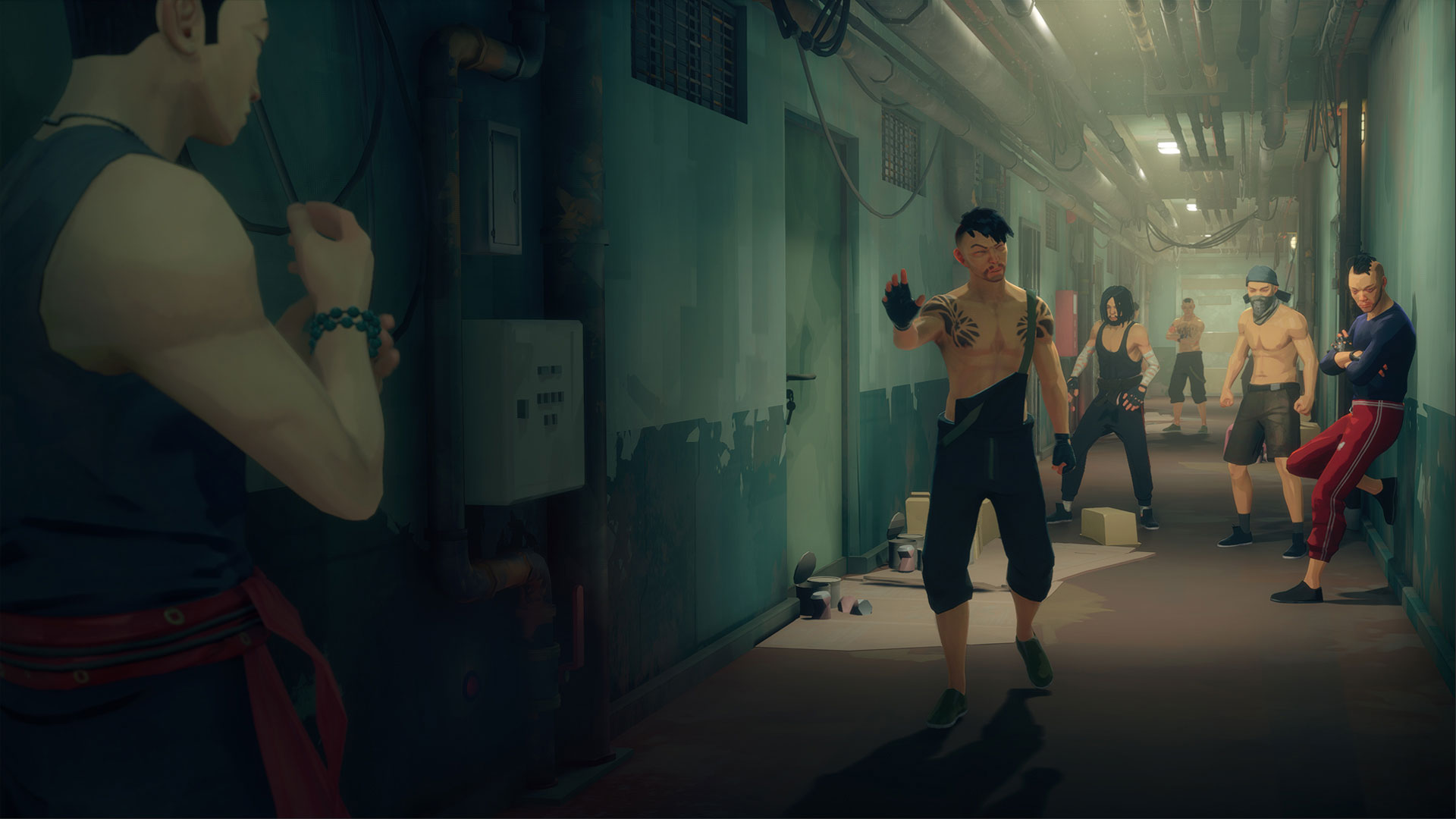Sifu devs on the challenge of bringing Mandarin Chinese to the action brawler
In conversation with Sifu voice director Li Zhengxiang and marketing manager Felix Garcyznski

Sifu is a game that relies heavily on Chinese culture. And, in its attempt to create something authentic to its source material, and adhere to cultural differences, developer Sloclap sought to include Mandarin Chinese voiceovers from the game's launch. With Sifu's text dialogue and story constantly under change until late in production, though, by the time the script was finalized, scheduling issues meant voiceovers could not be implemented prior to the game's release.
"We knew already in December 2021 that we wouldn't have the Mandarin voiceovers ready until early March, so it wasn't a factor in our decision to push our launch date ahead by two weeks," says Felix Garcyznski, Sloclap's marketing manager.
Fight against time

"As the game is heavily influenced by Chinese and Kung Fu culture, we also wanted players in China to be able to experience it in their own language".
February 2022, in particular, was a packed month filled with big game releases. This included the likes of Destiny 2: The Witch Queen and Dying Light 2. Sifu was originally scheduled to launch on February 22, the same day as PlayStation's exclusive Horizon Forbidden West, and very close to the hotly anticipated Elden Ring on February 25. Back in November 2021, however, Sloclap announced that Sifu's release date had been moved up by two weeks to February 8. Even if the game had retained its original release date in late February, the Mandarin voiceovers still wouldn't have been available at that time.
Garcyznski notes that Sifu was ready earlier than expected as Sloclap budgeted extra time in case of emergencies, given it was the studio's first experience with self-publishing. Garcyznski acknowledges that February was loaded with big game launches, saying, "as an indie studio with limited communication means compared to AAAs, we decided to seize the opportunity of releasing a bit earlier, which was a good surprise for our fans and everyone waiting for the game."
One key figure in bringing Mandarin Chinese to Sifu was voice director Li Zhengxiang, who notes that the tight schedule to record voiceover while localization files were being polished was his biggest challenge working on the game. He clarifies that it's not an issue specific to Sifu, but a common problem in the games industry. Zhengxiang says that he'd also like to further improve his work on Sifu: "If the game needs to do follow-up DLC, we also hope that we have the opportunity to make up for what we did not do as well."

"When a fight scene came up, the actors would be able to use some body language to better show the emotion in the sound".
Sifu is filled with references to classical martial arts movies and culture, and takes place in a fictional contemporary Chinese city. As such, Sloclap felt that for a lot of players, including themselves, having Mandarin voiceovers would help with immersion.
"As the game is heavily influenced by Chinese and Kung Fu culture, we also wanted players in China to be able to experience it in their own language," says Garczynski. Zhengxiang adds that he and his team would make simple adjustments to the Mandarin script according to the original English text, including some expressions and sentence structures, but only to make the expressions more natural.
Sign up to the GamesRadar+ Newsletter
Weekly digests, tales from the communities you love, and more
For example, the voice lines in Sifu were in more traditional Mandarin in order to reflect the ancient and classical roots of the culture, while there were a few exceptions. One of the bosses, Kuroki, had lines that contained buzzwords and modern slang to match her setting which was a contemporary museum.
One challenge that Zhengxiang faced was trying to make the Mandarin voiceovers authentic to native Chinese players, as they have the highest expectations. Most games nowadays have English and/or Japanese voice acting, depending on the studio and genre. "The previous voiceovers such as English and Japanese have already set the first impression among Chinese players, and first impressions are most lasting, so naturally, they will expect more from our Chinese version VO," he explains.
Since Sifu is an action game, the fights, dialogues, and cutscenes are interspersed with each other. Zhengxiang wanted to replicate the feeling of physical exertion of the game's characters. "Therefore, I required the actors to be on their feet in the studio the whole time, and managed to provide enough space for them," he continues. "So when a fight scene came up, the actors would be able to use some body language to better show the emotion in the sound."

Lui Beichen and Mi Xiao voiced the respective male and female versions of Sifu's protagonist. When it came to choosing who would voice which character, Zhengxiang says he considered factors such as the actor's timbre and tone, as well as age and gender. The actor's individual temperament was also taken into consideration. "After all, during the actor's performance, if his or her temperament is close to the character, things will be easier," he says.
In the case of Sifu's main villain, Yang, voiced by Huang Jinze, Zhengxiang recites a memorable sentence from the character, along the lines of, "After I killed your father, I saved a lot of people, but you don't care. All you see is hate." Zhengxiang says that through that line, players can see the temperament and image of Yang.
"I believe players will also understand what this game is trying to tell everyone: the villains in the story, each have their own difficulties and frustrations. There are no completely good people and completely bad people in the game in the traditional sense, it's just that they all have different values and concepts," Zhengxiang explains. "As a director or actor, I enjoyed this process very much, and we can experience many different lives."
Need the best fighting games in your life? Punch that link as hard as you can.
George Yang is a freelance writer with Gamesradar+ based out of the United States. He has a degree in Business but decided to not use it and went into the world of games journalism. He really enjoys JRPGs, but is willing to try out all different kinds of genres. He has written for other sites like IGN, GameSpot, Kotaku, NPR, Complex, and more.


